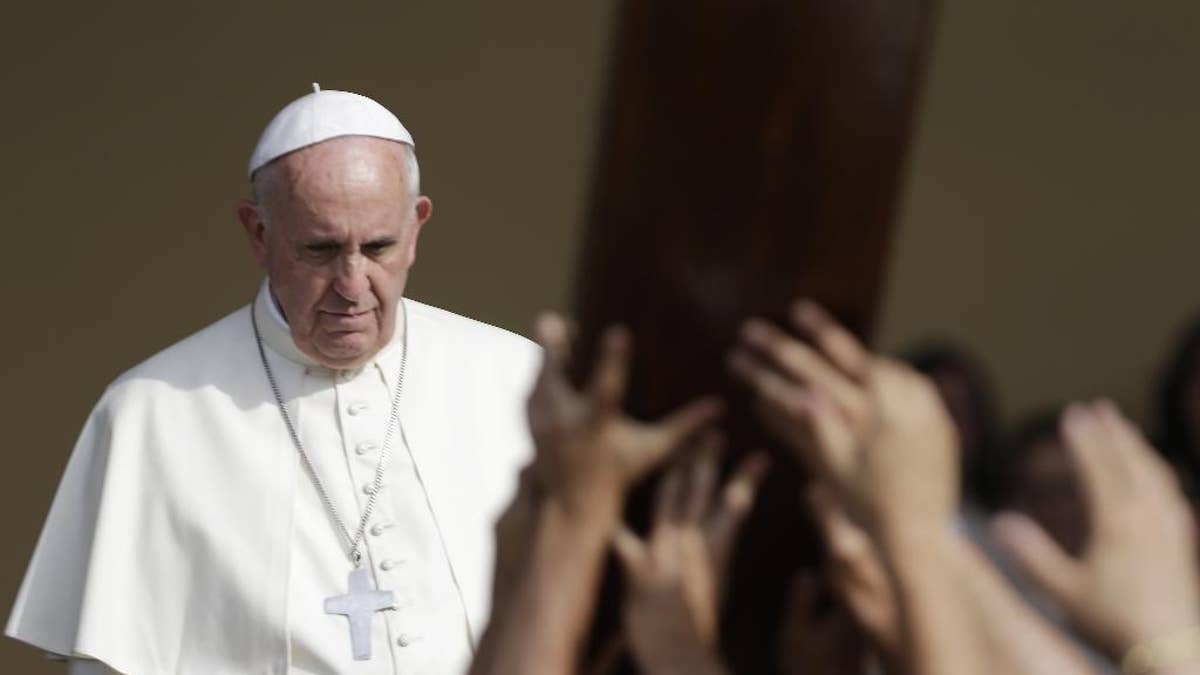
Pope Francis waits for a group of young people carrying a wooden cross during a meeting with the youths, in Turin, Italy, Sunday, June 21, 2015. Pope Francis earlier prayed in front of the Holy Shroud, the 14 foot-long linen revered by some as the burial cloth of Jesus, on display at the Cathedral of Turin. (The Associated Press)
As luck would have it, I was about to jump into the pope’s new environmental encyclical when I stumbled on an old story out of Israel. It seems that archaeological researchers found plaque on the teeth of people who lived 400,000 years ago.
One researcher told the Times of Israel that the plaque contained soot, indicating that early humans suffered smoke inhalation when they cooked meat inside caves. “As in other cases, progress was associated with environmental damage,” the researcher said.
Too bad Pope Francis didn’t see the story before releasing his severe critique of modern life. The history lesson might have tempered his approach.
You can call Francis’ environmental treatise bold, provocative and even visionary. You can call it anything you want — except well informed and wise. It is neither.
Of course, there are downsides, pollution, waste and some spoiling of nature chief among them. But air and water quality actually improved in the last half-century in most developed nations, a fact the pontiff doesn’t seem to fully grasp or appreciate. Perhaps that’s not surprising given that he said he hadn’t watched television since the 1990s.
At a time when blood is flowing like rivers around the globe, when Christians are being persecuted and when genocide and oppression are spreading, the world’s foremost religious figure ventures too far afield and gets lost in the socialist weeds.
Francis has shaken up the Vatican by showing a common touch, and you don’t have to be Catholic to admire his compassion for the poor and downtrodden. But his contempt for capitalism and anything resembling free markets strikes an un-religious chord, and he makes himself easy to dismiss when he complains the Earth “is beginning to look more and more like an immense pile of filth.”
“Never have we so hurt and mistreated our common home as we have in the last 200 years,” he declares. He decries the reliance on fossil fuels, blasts the “myth of progress,” is no fan of the fruits of technology and scorns multinational companies that produce commodities.
A Catholic newspaper from Great Britain called him “unduly pessimistic.” I agree, and would add that he is also unduly harsh.
To continue reading Michael Goodwin's column in the New York Post, click here.








































